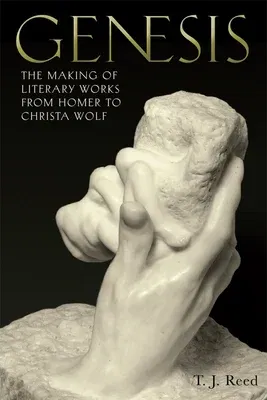T J Reed
(Author)Genesis: The Making of Literary Works from Homer to Christa WolfHardcover, 15 September 2020

Qty
1
Turbo
Ships in 2 - 3 days
In Stock
Free Delivery
Cash on Delivery
15 Days
Free Returns
Secure Checkout

Part of Series
Studies in German Literature Linguistics and Culture
Print Length
314 pages
Language
English
Publisher
Camden House (NY)
Date Published
15 Sep 2020
ISBN-10
1640140824
ISBN-13
9781640140820
Description
Product Details
Author:
Book Format:
Hardcover
Country of Origin:
US
Date Published:
15 September 2020
Dimensions:
22.61 x
15.49 x
2.79 cm
ISBN-10:
1640140824
ISBN-13:
9781640140820
Language:
English
Location:
Rochester
Pages:
314
Publisher:
Weight:
703.07 gm